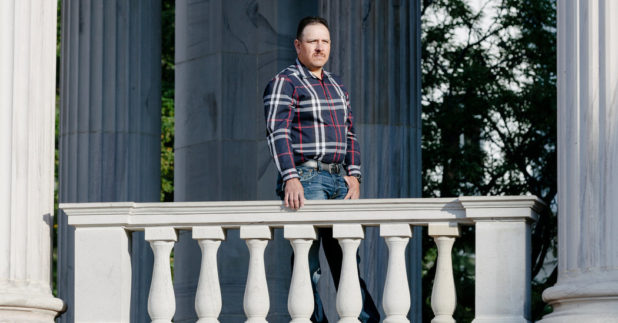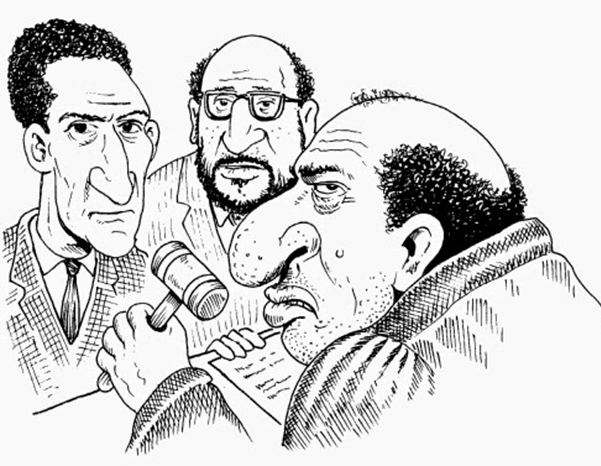Eric Striker
Daily Stormer
March 7, 2017

Miguel Angel Peña Rodriguez, a man who would be considered unquestionably white if he was on trial for shooting a black person in self-defense, recently won a Supreme Court case in which he claims an off the cuff comment about Mexicans (without giving the context in his complaint) by a juror in private deliberations outweighs all other circumstances in his felony child rape conviction.
This is a radical departure from Tanner v. United States (1987), where SCOTUS found that legitimate complaints about jurors spending most of a trial high on cocaine and marijuana wasn’t relevant enough grounds for a retrial or dismissal. The same SCOTUS in Warger v. Shauers (2014) reaffirmed the legal sanctity of a juror’s right to privacy in a unanimous decision that blocked any testimony on closed door jury contemplation.
Yet, while the system has papered over and dismissed serious flaws with the court system to rightfully protect a juror’s privacy, legal precedent has now been overturned over the abstract and mostly made up “institutional racism.”
The Supreme Court ruled on Monday that courts must make an exception to the usual rule that jury deliberations are secret when evidence emerges that those discussions were marred by racial or ethnic bias.
“Racial bias implicates unique historical, constitutional and institutional concerns,” Justice Anthony M. Kennedy wrote for the majority in the 5-to-3 decision.
The case arose from statements made during jury deliberations in a 2010 sexual assault trial. “I think he did it because he’s Mexican, and Mexican men take whatever they want,” a juror said of the defendant, according to sworn statements from other jurors submitted by defense lawyers after the trial was over.
The juror, identified in court papers as H.C., was a former law enforcement officer. After the trial was over, two other jurors submitted sworn statements describing what he had said during deliberations.
…
Those statements, Justice Kennedy wrote, warranted an investigation by the trial judge into deliberations that are ordinarily secret. Justices Ruth Bader Ginsburg, Stephen G. Breyer, Sonia Sotomayor and Elena Kagan joined the majority opinion.
In dissent, Justice Samuel A. Alito Jr., joined by Chief Justice John G. Roberts Jr. and Justice Clarence Thomas, wrote that the majority opinion was a well intentioned but ill-considered intrusion into jurors’ privacy. “This is a startling development,” Justice Alito wrote, “and although the court tries to limit the degree of intrusion, it is doubtful that there are principled grounds for preventing the expansion of today’s holding.”
Business as Jewsual, the three Jews and the rumored Marrano Sotomayor vote once again as a bloc without nuance, with their political agenda as the gavel, rather than the Constitution as the office demands. And once again, the “conservative” Justice Roberts – one of many crooked bastards appointed under George W. Bush – serves as the Shabbos Goy tie-breaker.
While Alito and the other dissenters did not specifically say it, the concerns with this outcome is predicated on the fact that “institutional bias” as it pertains to non-whites is a constantly changing and bogus construct. Jurors are already screened for “prejudice,” and when it comes to non-whites, they are usually tried by juries of their racial peers (see: “Bronx Jury”). Not to mention Crips or MS-13 members can now claim racism and find out exactly which jurors are voting to convict them.
What is to stop a negro’s defense team in the not so distant future, after being proven to have raped and murdered a white woman, from claiming that a jury convicting is racist in and of itself? Since Jewish intellectuals in academia inform the socially constructed lie of “institutional racism,” and its definition has changed radically to the point where affirming that “all lives matter” is racist, is this not a foreseeable conclusion?
With that said, don’t expect any of this apply to actual cases of racially motivated convictions when it’s a white on trial, as with the case of the Georgia flag wavers.

